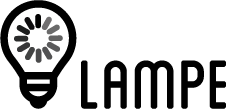John Hall is the Executive Director of Access Parkour (@accessparkour). He started out as a material scientist before switching career paths and teaching parkour.
Dr. Nicola Carse (@ScotPERN) and Dr. Paul McMillan (@pedagogypaul) are both at the University of Edinburgh.
At Access Parkour, we are interested in doing sports and physical education differently. Our approach has been described as Serious about fun and so when we found out about the Meaningfulness in Youth Sport (MiYS) study, we jumped at the chance to become involved. As we explored the material provided, we were delighted to see our beliefs about physical activity reflected in the principles of MiYS. It was with that in mind that we decided to examine how we used reflective practices at Access Parkour. While we believed that our work in upskilling newer coaches was quite good, we realized that once a coach was fully qualified, their continuing professional development (CPD) stuttered and slowed down.
It was our intention to implement a Lesson Study protocol. A Lesson Study is the process of a group of coaches coming together to design an experimental lesson plan that aims to address a problem that the coaches have noticed. One person then delivers the coaching plan while the others watch and provide feedback on how the lesson affected the students. We aimed to have one coach lead the development of a lesson plan each month. That meant they would lead the development of an idea once or twice a year. We felt that this was a suitable and sustainable pace for those who are full-time coaches to engage in reflective coaching practice.
The first lesson study ran in January, but we struggled to get much buy-in from the coaches. Some coaches felt anxiety (reporting they felt they were being assessed), while others struggled to come up with an idea they wanted to test. Some simply considered it another non-essential task they could ignore. While delivery of the Lesson Study was to be paid as normal coaching hours, coaches did not have a strong desire to engage with the project as they did not value the process. Since we received feedback that being observed while delivering sessions gave coaches anxiety, we then prioritized having all lead coaches be observed for one or two sessions without the pressure of feedback. Around this time, we also had an influx of new coaches and the lead coaches began providing feedback to new coaches. As a result, the lesson study plan was side-lined.
After seeking feedback from the MiYS group, we set up a specific space for coaches to reflect on their practice. This was simply a Whatsapp group where coaches would record voice notes or post after their classes summing up their experience while trying to answer two questions:
- What went well?
- What could have been improved?
This strategy quickly gained more buy-in from the coaches as they were able to reflect at their own pace and in their own way with looser guidance. They also saw value in listening to each other’s experiences and struggles. For busy professional coaches, this has been much easier to integrate.
Moving forward, we aim to continue to work at integrating the principle of reflective practice into our regular coaching. To do this, we recognize that experienced and full-time coaches must lead from the front, and work to overcome the natural resistance that coaches have about being observed We would like to revisit the lesson study approach with our new coaches and consider how we can embed this within a practice to help develop a culture of learning and reflection.

